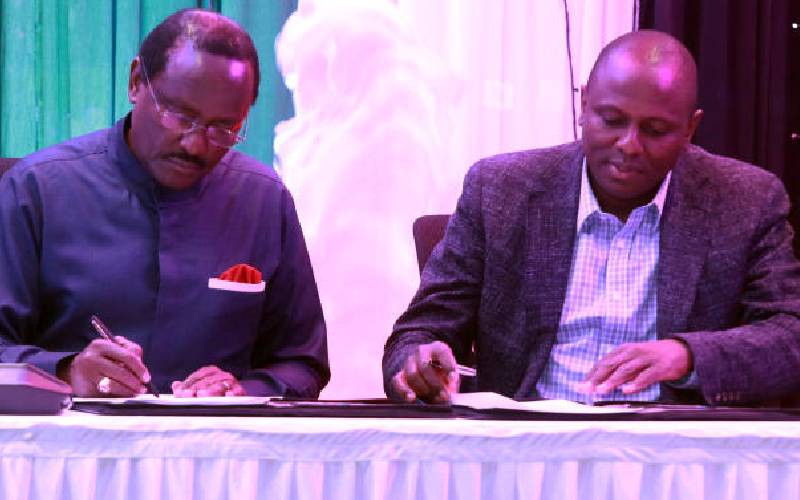×
The Standard e-Paper
Kenya’s Boldest Voice

Parliament has 45 days to reject or approve nine Bills meant to enforce the report of the National Dialogue Committee (Nadco).
National Assembly Speaker Moses Wetang'ula Wednesday committed the Nadco report to the Departmental Committee on Justice and Legal Affairs and the Senate Standing Committee on Justice, Legal Affairs and Human Rights which will actualise the report that among other things seeks to alter the structure of government.